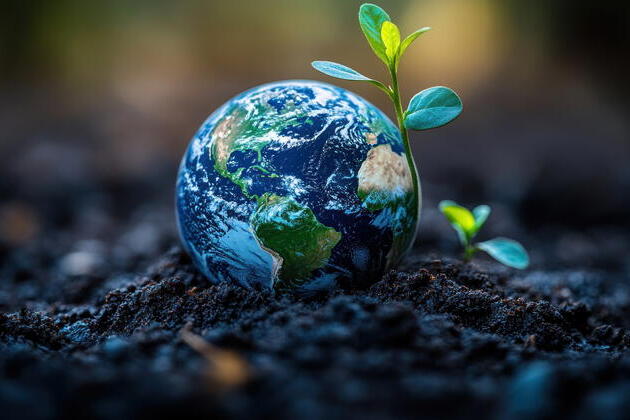Global impacts grow through ACES International Seed Grant program

Four College of Agricultural, Consumer and Environmental Sciences (ACES) faculty members have been awarded funding to establish or support an international collaboration as part of the longstanding ACES International Seed Grant Program.
The internal grant program, coordinated by the Office of International Programs, accepts applications each semester and awards grants to projects that show the most potential to build sustained, impactful international engagements.
“With the closing of USAID and cuts to other governmental funding options, these internal, privately funded grants are more important than ever to keep our faculty internationally engaged, and we are thankful to our donors who are passionate about international work. Over time we’ve seen these grants lead to additional external funding and make positive impacts around the world towards food security, sustainability, and other global challenges,” said Mary Arends-Kuenning, associate dean for international programs.
The 2025 Spring ACES International Seed Grant recipients are:
Kaiyu Guan, Department of Natural Resources and Environmental Sciences, "Advancing Agri-Food Innovation in Southeast Asia: Building Partnerships for Sustainable Rice Solutions" (Singapore and Vietnam)
Jorge Guzman, Department of Agricultural and Biological Engineering, "Soil Erosion and Adoption of Management Practices for Sustainable Agriculture in Tropical Mountainous Region: Tona River Watershed, Colombia"
Amir Malvandi, Department of Agricultural and Biological Engineering, "A Joint Collaboration Between the United States and South Africa for Developing Sustainable High Precision Drying Technology"
Braulio Macias Rodriguez, Department of Food Science and Human Nutrition, "Estimating the Mechanics of Fat MetaMaterials (FatMMat) Using X-ray Imaging and Finite Element Method for Enhanced Texture and Nutrition" (Finland)
Previous grant cycles continue to show impacts
To measure the success of the grant program, the Office of International Programs conducts regular reporting to collect impacts from the grant recipients.
“It may take 1-2 years before we see huge impacts from a project, but our reporting continues to show the grants are working as intended to bring us new collaborators, support our student experiences, develop new technologies, and receive more funding towards all of these goals,” says Arends-Kuenning.
The 2023-2024 seed grants have already shown several impacts including supporting several theses and dissertations, adding many new international partnerships in Brazil, Honduras, India, South Africa, France, Australia, Indonesia, and Costa Rica.
Some specific examples of the recent impacts reported using funds from 2023-2024 seed grants include:
- Damir Torrico, Department of Food Science and Human Nutrition, and his graduate student initiated experiments on plant-based fermentation and conducted sensory evaluations to further the quality of yogurts. The team worked in labs at Illinois and Honduras’s Zamorano University, using plant-based materials. They will present the findings at this year’s Institute of Food Technologists’ annual conference, and Torrico has already received additional funding towards this work from the Division of Nutritional Sciences at Illinois - Vision 20/20 program.
- Catalina Herrera Almanza, Department of Agricultural and Consumer Economics, collected household survey data that have been instrumental to collaborate on projects related to women’s mental health in India.
- Camila Braz, Department of Animal Sciences, established a genetic foundation for understanding prolificacy in sheep, a key factor influencing profitability in sheep production systems.
- Gopu Nair and Jorge Guzman, Department of Agricultural and Biological Engineering, have partnered with TEC Costa Rica to develop more value-added products from natural fibers from pineapple leaves.
- Diane Plewa, Department of Crop Sciences and Extension, and Esneider Mahecha, Department of Crop Sciences, trained students at the National University of Colombia Plant Health laboratory to test for plant pathogens, determine a diagnosis, and provide recommendations to hydrangea growers. The growers are now funding a student to do additional testing and expand the testing to additional farms.